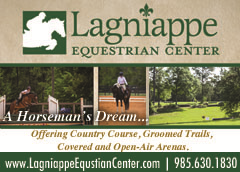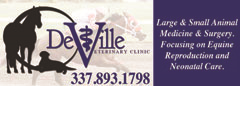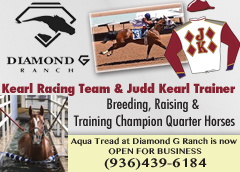Written by Barbara Newtown
Original Publish Date April 2015
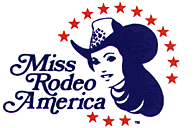 Lauren Heaton, 24, winner of the 2015 Miss Rodeo America pageant, is a cowgirl and a businesswoman. The contestants for the title are professionals: the woman who wins is expected to promote the sport of rodeo with expert communication and marketing skills. Lauren has all the credentials to carry out her reign with style: a five-generation farming and ranching background and a savvy knowledge of marketing.
Lauren Heaton, 24, winner of the 2015 Miss Rodeo America pageant, is a cowgirl and a businesswoman. The contestants for the title are professionals: the woman who wins is expected to promote the sport of rodeo with expert communication and marketing skills. Lauren has all the credentials to carry out her reign with style: a five-generation farming and ranching background and a savvy knowledge of marketing.
Her home town is Alva, Oklahoma, a little farming community in the northwest corner of the state. “We are known for wind and dry heat,” she says. The hardships of life in Oklahoma give its people resilience. “Oklahoma has more natural disasters—earthquakes, tornadoes, blizzards—than any other land-locked state. We bounce back. We find a way to come out stronger and better.”
Lauren’s forebears raced for acreage in the Oklahoma land rush of 1893. President Grover Cleveland signed the family’s land certificate. Since then, all of the Heaton generations have been raised on the family farm. Today the farm covers 1200 acres and supports wheat, corn, alfalfa, grass hay, soybeans, and four or five Quarter Horses, including Lauren’s roping and reining mounts. Lauren’s father is in charge of the farm and her mother does the management side of the farm business. Her older brother Lance, 29, will take over his father’s responsibilities someday. Middle brother Landon, 28, works as a mechanical engineer for an oil company in Oklahoma City, but he plans to come back to Alva someday, too. “And I have two nieces who love the farm who are part of the sixth generation!” says Lauren. The tradition will continue.
Lauren graduated from Oklahoma State University in Stillwater with a degree in Strategic Communications. “It’s a dual degree,” she says, “combining public relations and advertising. And I had two minors, one in marketing and one in business.” She is grateful to the Miss Rodeo America pageant, which awarded her $29,000 in scholarship money for pursuing a Master of Business Administration degree when her reign is done.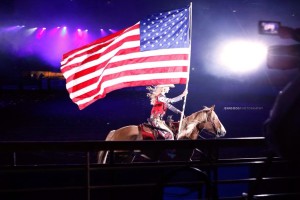
Lauren grew up in rodeo and has serious skills in reining and roping. She currently rides as a header in the US Team Roping Association and loves competing as part of a team. However, while in college, she branched out and tried jumping competitions as a member of the US Equestrian Federation. “I’ve got all-around horse experience. I can understand many aspects of the industry, not just rodeo. For instance, I’m looking forward to speaking at the Quarter Horse Congress in Columbus, Ohio.” A broad view is a plus for being Miss Rodeo America. Sponsors may support rodeo, but they also may market products for English, Western, and other disciplines. “For example,” says Lauren, “Justin Boots is coming out with a line of English equipment, tall boots and half chaps. I’m excited to be working with them on the marketing.”
Lauren is proud of her success in the pageant. It’s not easy, even if you don’t pull off the big win: contestants work 16-hour days for eight days. “You have to be capable!” she says. “You name it, we’re being judged on it: media issues, public speaking, modeling, improv, horsemanship, current events, sponsorship commercials. The organizers know we will be hit with everything once we get ‘out there.’”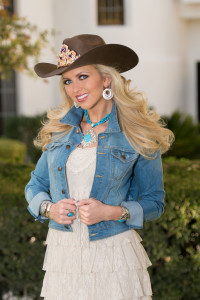
The improv tests are tough. There are three categories: current events, rodeo, and personality. The current events questions cover one’s own state, the nation, and the world. Contestants have to be ready for hot topics: marijuana laws, the Islamic State in Syria. The rodeo questions cover the history of rodeo, past winners, and Pro Rodeo Hall of Fame inductees. And the “personality” questions are drawn from a contestant’s own application and require the contestant to state an opinion and defend it. During Miss Rodeo America’s reign, she will often find herself in front of a camera and bombarded with challenging questions. “You have to be able to handle it and answer correctly,” says Lauren.
The greatest challenge facing rodeo, Lauren believes, is finding a balance between staying true to rodeo’s traditions and providing a fast-paced, well-produced piece of entertainment. “We don’t want to lose the foundations of rodeo: the skills needed by the working cowboy on the ranch. But pure rodeo may seem too abstract to the average audience member. So the organizers add music and fireworks and humor to keep the entertainment value up.” Lauren points out that those who love rodeo want to promote it and move it forward into the future. She is impressed with how the rodeo production side is engaging the audience.
“Rodeo is family entertainment,” says Lauren. “It is a God-and-country show. We always start with the national anthem and a prayer.” The rodeo organizers realize that they need to bring in new audiences. And there are potential rodeo fans out there who don’t yet know that they will love rodeo. The Houston month-long rodeo, for instance, signed Ariana Grande, a Broadway and television star, as concert entertainment. “They could have hired a country singer and sold out every night, but they’ve already got that audience coming to the rodeo. They have a really great marketing strategy: take 75,000 Ariana Grande fans from the pop-urban world, and show them an hour and a half of rodeo.” Lauren says the rural tradition of the nation is fading away. There are people out there who have never seen a horse or an arena filled with dirt. “So, for an hour or two, we say, ‘Welcome to our world!’”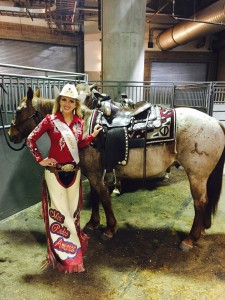
The Miss Rodeo America organization has a “to-and-from” rule. Lauren has to wear Western garb, including her sash and crown, whenever she is traveling. “People are amazed and curious,” she says. “I love it when people come up to me and say, ‘Happy Birthday!’ I say it’s not my birthday—I’m a rodeo queen! I love to explain to people about rodeo.” Rodeo queen attire is an ice-breaker. “They don’t know what you are, but they know you are all dressed up and sparkly, and they want to be a part of that!” She explains that meeting the public and finding new fans are her job and her goal. “Great places to find new fans are taxicabs, airports, hotels. It makes sense for me to dress like a rodeo queen at a rodeo, but that’s to represent the fans who are already there.” It’s in all the other places that Lauren knows she will find new supporters of rodeo.
“We go to nursing homes and children’s hospitals. We do school visits. And we educate people about the animals in rodeo.” Lauren says that organizations like PETA will sometimes put hard questions to rodeo representatives. “They aren’t looking for answers—they just want to make their points.” The Miss Rodeo America organization has a Director of Animal Outreach who trains the contestants in how to respond to belligerent questions. The key is to stay positive. “The most important thing is to educate the public about how well we take care of our animals. Especially the bucking stock—some of them are worth more than a hundred thousand dollars, and they only work a minute a year!”
Lauren loves visiting nursing homes and listening to folks reminisce about early days on the farm. “I love hearing about how they were raised, and how rodeo got started.” Soon there will be few people left who remember what it was like to have a spur-of-the-moment race across the pasture to decide the fastest Quarter Horse, or who remember bucking out young ranch horses, or who remember the smell of new hay.
Lauren has a favorite horse: Bert. (His registered name is Doc Tie Bert, and he has won the AQHA Worlds in reining and team roping.) “He’s my go-to horse,” she says. “He’s very chill in the pasture, but he’s all business when we go to work team roping. He gets all amped up. But I can put my niece on him right afterwards and he’s perfectly quiet!”
Lauren has trained herself to be a “go-to” person. As Queen, it is her job to be well-rounded and well-educated about the industry as a whole: the competitions, the animals, the competitors, the fans, the history, and the future.

